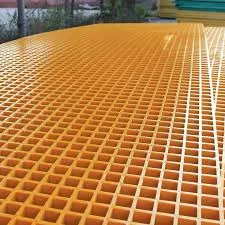
-
 Afrikaans
Afrikaans -
 Albanian
Albanian -
 Amharic
Amharic -
 Arabic
Arabic -
 Armenian
Armenian -
 Azerbaijani
Azerbaijani -
 Basque
Basque -
 Belarusian
Belarusian -
 Bengali
Bengali -
 Bosnian
Bosnian -
 Bulgarian
Bulgarian -
 Catalan
Catalan -
 Cebuano
Cebuano -
 China
China -
 China (Taiwan)
China (Taiwan) -
 Corsican
Corsican -
 Croatian
Croatian -
 Czech
Czech -
 Danish
Danish -
 Dutch
Dutch -
 English
English -
 Esperanto
Esperanto -
 Estonian
Estonian -
 Finnish
Finnish -
 French
French -
 Frisian
Frisian -
 Galician
Galician -
 Georgian
Georgian -
 German
German -
 Greek
Greek -
 Gujarati
Gujarati -
 Haitian Creole
Haitian Creole -
 hausa
hausa -
 hawaiian
hawaiian -
 Hebrew
Hebrew -
 Hindi
Hindi -
 Miao
Miao -
 Hungarian
Hungarian -
 Icelandic
Icelandic -
 igbo
igbo -
 Indonesian
Indonesian -
 irish
irish -
 Italian
Italian -
 Japanese
Japanese -
 Javanese
Javanese -
 Kannada
Kannada -
 kazakh
kazakh -
 Khmer
Khmer -
 Rwandese
Rwandese -
 Korean
Korean -
 Kurdish
Kurdish -
 Kyrgyz
Kyrgyz -
 Lao
Lao -
 Latin
Latin -
 Latvian
Latvian -
 Lithuanian
Lithuanian -
 Luxembourgish
Luxembourgish -
 Macedonian
Macedonian -
 Malgashi
Malgashi -
 Malay
Malay -
 Malayalam
Malayalam -
 Maltese
Maltese -
 Maori
Maori -
 Marathi
Marathi -
 Mongolian
Mongolian -
 Myanmar
Myanmar -
 Nepali
Nepali -
 Norwegian
Norwegian -
 Norwegian
Norwegian -
 Occitan
Occitan -
 Pashto
Pashto -
 Persian
Persian -
 Polish
Polish -
 Portuguese
Portuguese -
 Punjabi
Punjabi -
 Romanian
Romanian -
 Russian
Russian -
 Samoan
Samoan -
 Scottish Gaelic
Scottish Gaelic -
 Serbian
Serbian -
 Sesotho
Sesotho -
 Shona
Shona -
 Sindhi
Sindhi -
 Sinhala
Sinhala -
 Slovak
Slovak -
 Slovenian
Slovenian -
 Somali
Somali -
 Spanish
Spanish -
 Sundanese
Sundanese -
 Swahili
Swahili -
 Swedish
Swedish -
 Tagalog
Tagalog -
 Tajik
Tajik -
 Tamil
Tamil -
 Tatar
Tatar -
 Telugu
Telugu -
 Thai
Thai -
 Turkish
Turkish -
 Turkmen
Turkmen -
 Ukrainian
Ukrainian -
 Urdu
Urdu -
 Uighur
Uighur -
 Uzbek
Uzbek -
 Vietnamese
Vietnamese -
 Welsh
Welsh -
 Bantu
Bantu -
 Yiddish
Yiddish -
 Yoruba
Yoruba -
 Zulu
Zulu
Exploring the Benefits and Applications of Fiberglass Stacks in Industry
Fiberglass Stacks Revolutionizing Industrial Emissions Control
In the contemporary world, industrial pollution is a pressing concern that demands innovative solutions. As industries expand and production intensifies, the need for effective emissions control has never been greater. One of the most significant advancements in this field is the use of fiberglass stacks, which have emerged as a vital component in managing and mitigating industrial emissions.
Fiberglass stacks, constructed primarily from reinforced plastic composites, offer numerous advantages over traditional materials such as steel and concrete. One of the most compelling features of fiberglass is its lightweight nature, which simplifies the installation process and reduces the overall structural load on industrial facilities. This characteristic not only facilitates installation but also allows for greater design flexibility; manufacturers can easily mold fiberglass into various shapes and sizes to meet specific operational needs.
Corrosion resistance is another critical benefit of fiberglass stacks. Traditional materials like steel are susceptible to rust and degradation when exposed to caustic substances often found in industrial emissions. In contrast, fiberglass is inherently resistant to corrosion, providing a durable, long-lasting solution that can withstand harsh chemical environments. This durability translates into lower maintenance costs and extended service life, offering significant long-term savings for industries.
Moreover, fiberglass stacks are highly effective at insulating against temperature variations. In industries where high-temperature gases are expelled, maintaining the structural integrity of exhaust systems is paramount. Fiberglass’s insulating properties help to reduce thermal stress and prevent heat loss, ensuring that the emissions control system operates efficiently. This efficiency is not only environmentally friendly but also contributes to energy savings, aligning with the growing trend towards sustainable practices in industrial operations.
fiberglass stack

In addition to these advantages, fiberglass stacks can be tailored to meet stringent regulatory requirements aimed at reducing the environmental impact of industrial activities. As governments around the world impose stricter emissions standards, industries must adapt to remain compliant. The versatility of fiberglass allows for the implementation of advanced filtration and scrubbing technologies, ensuring that harmful pollutants are effectively captured before they enter the atmosphere. This adaptability is crucial for industries striving to maintain their licenses to operate in an increasingly eco-conscious market.
The installation of fiberglass stacks is part of a broader strategy for emissions control that includes regular monitoring and maintenance. Advanced sensor technology can be integrated into these systems to provide real-time data on emissions, enabling facilities to respond quickly to potential issues. This proactive approach not only helps in maintaining compliance but also enhances public trust in industrial operations by demonstrating a commitment to environmental responsibility.
As industries continue to innovate and evolve, the role of fiberglass stacks in emissions control will only grow. The combination of durability, lightweight design, corrosion resistance, and adaptability makes fiberglass a material of choice for a wide range of applications. From manufacturing plants to chemical processing facilities, industries worldwide are recognizing the benefits of incorporating fiberglass stacks into their emissions management strategies.
In conclusion, fiberglass stacks represent a significant leap forward in industrial emissions control. By providing a reliable, efficient, and adaptable solution, they help industries minimize their environmental footprint while optimizing operational efficiency. As we face the challenges of climate change and environmental degradation, the adoption of advanced technologies like fiberglass stacks will be essential for achieving a sustainable future in industrial operations. Their importance cannot be overstated as we strive to balance economic growth with environmental responsibility.









